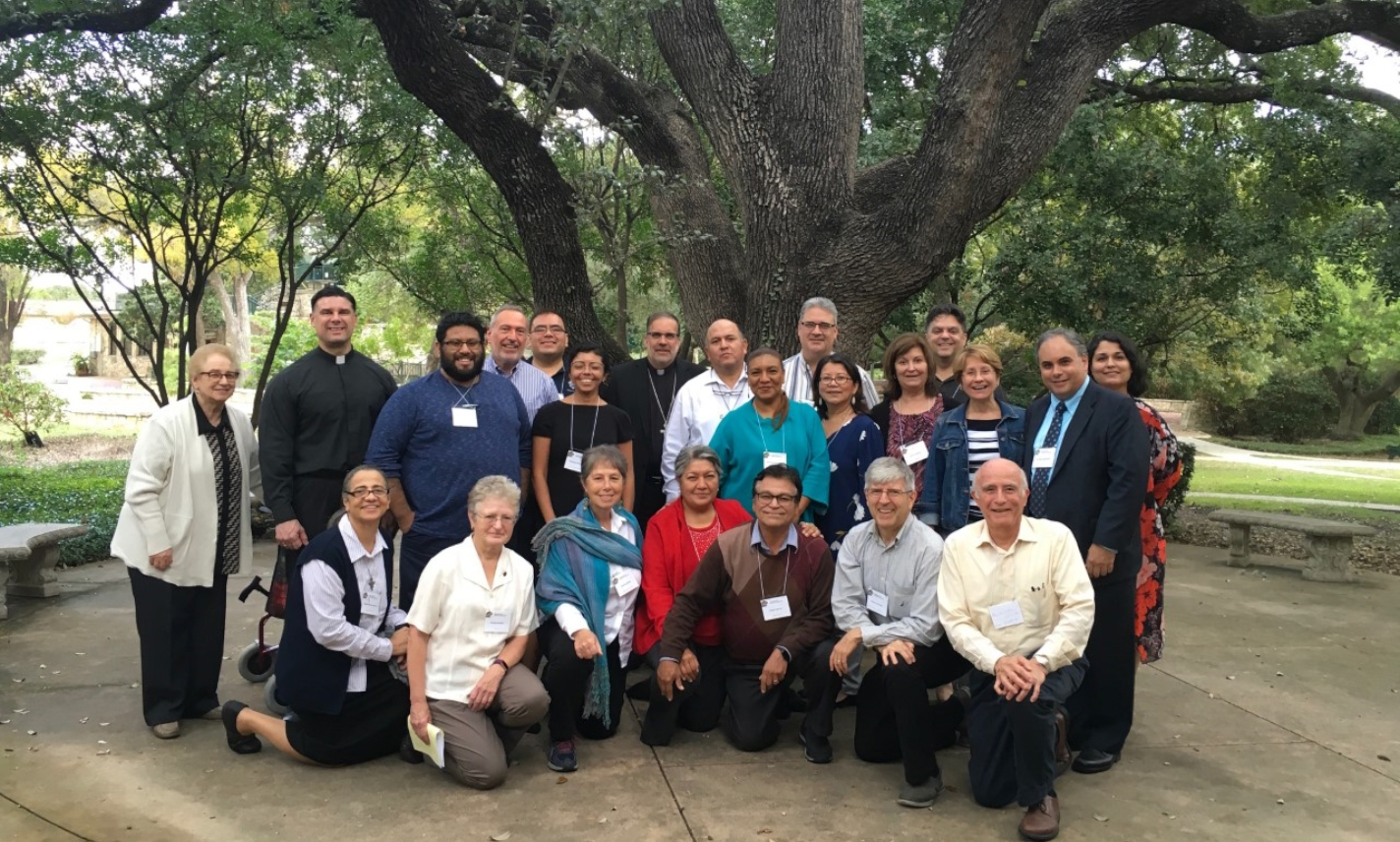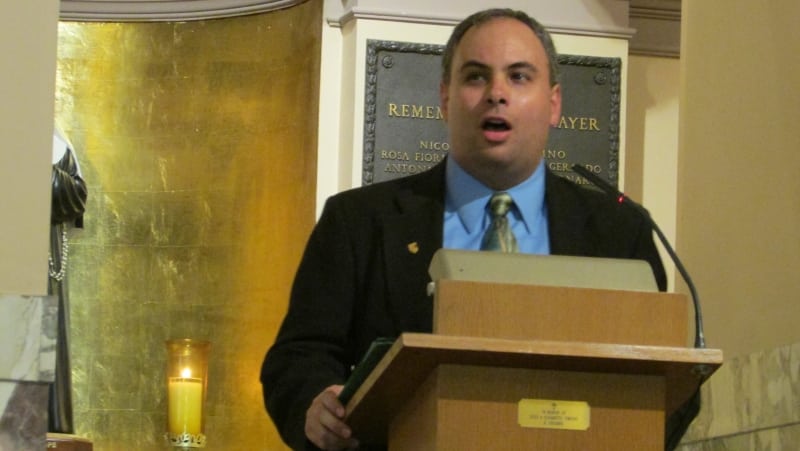Saturday of the Twenty-Sixth Week in Ordinary Time | October 3, 2020
“Train us O Lord, to fling ourselves upon the impossible, for behind the impossible is your grace and your presence; we cannot fall into emptiness. The future is an enigma. Our road is covered in mist, but we want to go on giving ourselves, because you sustain our hope amid the night even as you weep tears through a thousand human eyes.”
That prayer comes from a Bolivian priest – Fr. Luis Espinal Camps – who was killed for his care for the poor in 1980. It also offers an insight into the story of Job, the conclusion of which we hear in today’s first reading.
Job’s saga is an amazing Old Testament story of faith in the midst of adversity – but not in the way you’d expect.
According to the biblical story, Job had his family taken from him in tragedies, and then his health as well. It was part of a plan concocted by Satan to see if Job’s faith was genuine and true.
A common phrase that we hear is that someone who endures many sufferings or challenges well has the “patience of Job.” But in the actual book of the Bible, Job is anything but patient! Most of the book is a fierce debate between Job and three friends of his who all think Job must have committed some terrible, secret sin to be afflicted in such a way. It’s the old misunderstanding of God’s ways that some today call the Prosperity Gospel – the idea that if you are physically and economically blessed in life you must be doing God’s will and if you’re not so blessed, you must be a sinner. That idea is soundly rejected by the Catholic Church and most Christian churches because it presumes to ascribe to God motivations that are not only capricious, but cruel as well.
In spite of this onslaught from his 3 so-called friends – Job fiercely maintains his innocence before God and actually dares in his prayers to demand – DEMAND – that God give him a hearing and justify himself.
Job dares to ask God a question which philosophers and believers down through the centuries have struggled with – a question which is perhaps in the minds of so many of us, especially in this year of pandemic: “Why do the innocent suffer? It seems God does not act to save them when God certainly has the power to do so.”
Like many of us, Job reached out to God and demanded an answer to this question, which is very real and painful for him. Yet he maintained unswerving faith in God. Job trusts that God will answer. He does what Fr. Espinal prayed about – he flung himself upon the impossible, trusting that God was there to receive him.
And God grants Job’s request. At the end of the book, God appears to Job from a whirlwind and responds directly to him. He rebukes Job’s friends for getting it all wrong – God did not desire Job’s suffering. But God speaks directly to Job’s broken heart and gives him perspective on how God’s ways and God’s desires are above and beyond what he can imagine.
God says that he isn’t some kind of human lawyer or philosopher that can give an answer that is acceptable in the human realm. God reminds Job that while God and God’s ways can be an awesome mystery, Job can always count on God to be on Job’s side with him, even in the greatest suffering. God loves Job as his beloved child, and breaks through all the empty talk of his friends and the pain of Job’s heart to reveal that to him.
And so, as we see in today’s first reading, Job relents. He has met the living God, who loves him, and it is enough. Now after that, the story is quickly reversed and Job is restored to health with an even bigger family, but that’s not the point. The point is that his faith – sustained even in the midst of unimaginable sorrow – allowed him a glimpse of God’s bigger plan.
It is the same plan of God that caused Jesus himself to rejoice in today’s Gospel. Jesus bursts out in praise when God’s hidden work is revealed and celebrated by those who believe and trust that God stand behind what we consider impossible, waiting to receive us in loving arms.
God give you peace!
+ + +
As Director of Certification for Ecclesial Ministry and Service at the United States Conference of Catholic Bishops (USCCB), I have the opportunity to record video reflections on the readings of the Scriptures proclaimed at daily Mass. I do so as part of larger group of colleagues at the Conference, along with lay and ordained leaders from around the country. I am grateful for the opportunity to reflect on the meaning of the readings for the life of faith today and to share them here, along with the written text of the reflections. To view these video reflections for past and upcoming celebrations of the Eucharist, visit the USCCB website.


 Request Dr. DelMonico's professional services for a liturgical, ministerial or leadership consultation, or for an academic or public presentation.
Request Dr. DelMonico's professional services for a liturgical, ministerial or leadership consultation, or for an academic or public presentation.